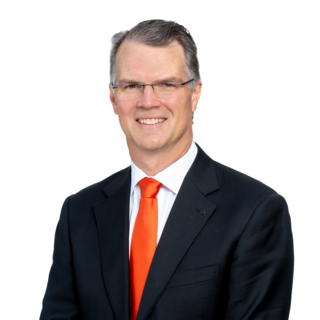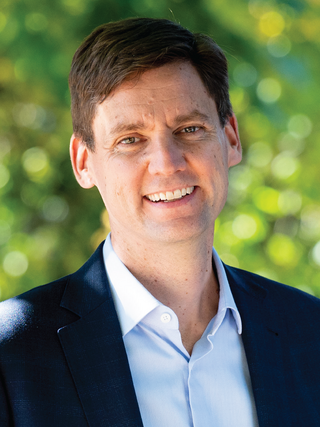Political context
Non-party system
There were to be no political parties in the new province. The designations "Government" and "Opposition" and "Independent" (and variations on these) functioned in place of parties, but they were very loose and do not represent formal coalitions, more alignments of support during the campaign. "Government" meant in support of the current Premier; "Opposition" meant campaigning against him, and often enough the Opposition would win and immediately become the Government.
Although Labour as a party had run candidates in previous election, this election saw the first victories by Labour candidates (in Nanaimo and Nanaimo City), and a "Farmer" candidate (in the second Nanaimo seat). There were five successful independents.
The Robson Government
The government of newspaperman John Robson received a mandate after assuming power the year before. Robson died in office in 1892, yielding to Theodore Davie.
Byelections not shown
Any changes due to byelections are shown below the main table showing the theoretical composition of the House after the election. A final table showing the composition of the House at the dissolution of the Legislature at the end of this Parliament can be found below the byelections. The main table represents the immediate results of the election only, not changes in governing coalitions or eventual changes due to byelections.
List of ridings
The original ridings were thirteen in number, and Cowichan was restored to a two-member seat while New Westminster was increased to three, with the new total being 33 members. There were no political parties were not acceptable in the House by convention, though some members were openly partisan at the federal level (usually Conservative, although both Liberal and Labour allegiance were on display by some candidates).
These ridings were:
Polling conditions
Natives (First Nations) and Chinese were disallowed from voting, although naturalized Kanakas (Hawaiian colonists) and American and West Indian blacks and certain others participated. The requirement that knowledge of English be spoken for balloting was discussed but not applied.
The 1924 British Columbia general election was the sixteenth general election in the Canadian province of British Columbia. It was held to elect members of the Legislative Assembly of British Columbia. The election was called on May 10, 1924, and held on June 20, 1924. The new legislature met for the first time on November 3, 1924.

The 1920 British Columbia general election was the fifteenth general election for the Province of British Columbia, Canada. It was held to elect members of the Legislative Assembly of British Columbia. The election was called on October 23, 1920, and held on December 1, 1920. The new legislature met for the first time on February 8, 1921.
The 1871 British Columbia general election was held from October to December 1871. Formerly a British colony, British Columbia became a province of Canada on July 20, 1871. An interim Cabinet was appointed by the lieutenant governor of British Columbia and election writs for the first general election as a province of Canada were issued to choose 25 members of the first provincial legislature from 12 ridings. These ridings were:
The 1875 British Columbia general election was held in 1875. Many of the politicians in the House had served with the Legislative Council or Assembly or the Executive Council, or had otherwise been stalwarts of the colonial era - some supporters of Confederation, others not. Some were ranchers or mining bosses from the Interior, others were colonial gentry from the Island and New Westminster, and others direct arrivals from Britain, Ireland or "Canada", which was still considered a different place not only in the minds of the politicians but in the language used in Hansard during this period.
The 1878 British Columbia general election was held in 1878.
The 1882 British Columbia general election was held in 1882.
The 1886 British Columbia general election was held in 1886. The number of members was increased for this election from 25 to 27, and the number of ridings increased to 13.
The 1894 British Columbia general election was held in 1894. The number of members remained at 33 with the number of ridings increased to 26 as a result of the partition of the Yale and Westminster ridings.

Fin Donnelly is a Canadian politician. He has served as the member of the Legislative Assembly (MLA) of British Columbia for the electoral district of Coquitlam-Burke Mountain since 2020, as part of the British Columbia New Democratic Party caucus. He previously served as member of Parliament (MP) as part of the federal NDP caucus, representing New Westminster—Coquitlam from 2009 to 2015, and Port Moody—Coquitlam from 2015 to 2019.
The Socialist Party of British Columbia (SPBC) was a provincial political party in British Columbia, Canada, from 1901 to 1905. In 1903, the SPBC won seats in the Legislative Assembly of British Columbia.

The Legislative Council of British Columbia was created in 1867 for the governor of the "new" United Colony of British Columbia. The merged colony had not theretofore had a responsible government, and its executive power was only it's governor, who at the time of its Legislative Assembly's founding was Frederick Seymour.
An electoral redistribution was undertaken in 2008 in British Columbia in a process that began in late 2005 and was completed with the passage of the Electoral Districts Act, 2008 on April 10, 2008. The redistribution modified most electoral boundaries in the province and increased the number of MLAs from 79 to 85. The electoral boundaries created by the redistribution were first used in the 2009 provincial election.
Bill Routley is a Canadian politician who served as a Member of the Legislative Assembly of British Columbia in the 39th and 40th Parliament of British Columbia, from 2009 to 2017. As a member of the BC New Democratic Party, he was elected to represent the riding of Cowichan Valley in the 2009 provincial election and re-elected in the 2013 election. In both parliaments his NDP formed the official opposition and Routley acted as their deputy critic on issues relating to forests and natural resource operations.
The 6th Legislative Assembly of British Columbia sat from 1891 to 1894. The members were elected in the British Columbia general election held in June 1890. John Robson served as premier until his death in 1892. Theodore Davie succeeded Robson as premier.
The 9th Legislative Assembly of British Columbia sat from 1900 to 1903. The members were elected in the British Columbia general election held in June 1900. James Dunsmuir served as Premier until he resigned in November 21, 1902. Dunsmuir was succeeded by Edward Gawler Prior, who was dismissed by the lieutenant governor for conflict of interest. Richard McBride became Premier in June 1903.

The 2024 British Columbia general election was held on October 19, 2024, to elect 93 members (MLAs) of the Legislative Assembly to serve in the 43rd parliament of the Canadian province of British Columbia.
An electoral redistribution in British Columbia was undertaken by the BC Electoral Boundaries Commission in 2021. On October 21, 2021, the Government of British Columbia appointed Justice Nitya Iyer, Linda Tynan and Chief Electoral Officer Anton Boegman to serve as the 2021 commissioners. Justice Iyer was appointed the chair.
This page is based on this
Wikipedia article Text is available under the
CC BY-SA 4.0 license; additional terms may apply.
Images, videos and audio are available under their respective licenses.




